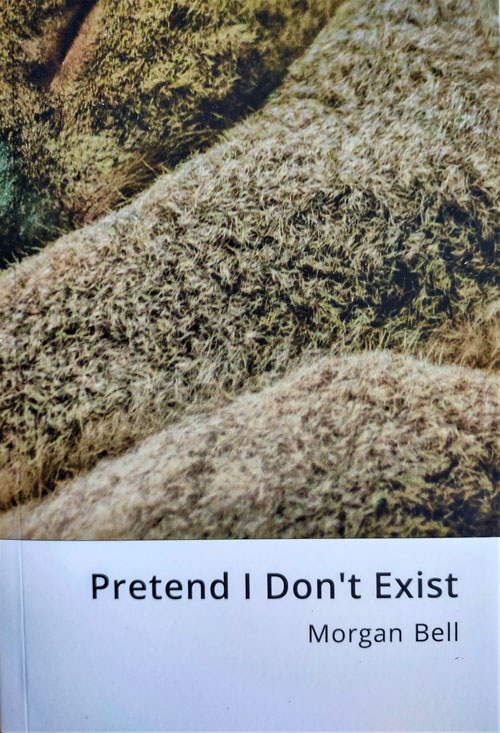 Pretend I Don’t Exist is a delight to read – the kind of book a parent can have a lot of fun reading to a child (or vice versa) but also one that tells a serious and important story about the beauty of animal sentience, the rich interplay of the human and the natural, animate world, and perhaps most importantly, the precariousness of the latter, particularly when it comes to koalas who are increasingly vulnerability, facing a significant and rapidly increasing loss of habitat.
Pretend I Don’t Exist is a delight to read – the kind of book a parent can have a lot of fun reading to a child (or vice versa) but also one that tells a serious and important story about the beauty of animal sentience, the rich interplay of the human and the natural, animate world, and perhaps most importantly, the precariousness of the latter, particularly when it comes to koalas who are increasingly vulnerability, facing a significant and rapidly increasing loss of habitat.
Category: Poetry Reviews
A review of Off Limits by Louise Wakeling
 Wakeling writes lines methodically, in a measured way, never letting her words race ahead of her intended message, whether she is writing about underground stormwater pipes, a power station or the underbelly of a secret Sydney. The poet filters ordinary experiences and places through vibrant images and poignant words.The poet brings to the front paradigms of life and the world, sometimes her observations are like theorems others like syllogisms and others like a work of art.
Wakeling writes lines methodically, in a measured way, never letting her words race ahead of her intended message, whether she is writing about underground stormwater pipes, a power station or the underbelly of a secret Sydney. The poet filters ordinary experiences and places through vibrant images and poignant words.The poet brings to the front paradigms of life and the world, sometimes her observations are like theorems others like syllogisms and others like a work of art.
A review of Count Four: Poems by Keith Kopka
 These speakers, Kopka’s tellers – their attitudes – interest me more than anything else. They seem to hurt, as if they live as emotionally bruised, successful failures whose memories of fathers and mothers, family, course the past coming in on the writer’s desire to tell all – and more – to live to play music so close to grieving, I want to wince then sigh for the horrific plight joy brings alive on the planet.
These speakers, Kopka’s tellers – their attitudes – interest me more than anything else. They seem to hurt, as if they live as emotionally bruised, successful failures whose memories of fathers and mothers, family, course the past coming in on the writer’s desire to tell all – and more – to live to play music so close to grieving, I want to wince then sigh for the horrific plight joy brings alive on the planet.
A review of Greedy Cow by Fiona Sinclair
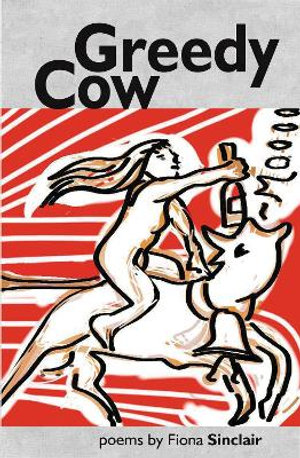 The collection opens with Sinclair’s humorous experiences with internet dating, from the pervy responses to her profile picture to flirting with emoticons; “over the week I virtual two time / men from Rochester and Deal.” Soon enough, though, she begins a relationship with a man – “our steps synchronize like Fred and Ginger” – and over time they adjust to one another.
The collection opens with Sinclair’s humorous experiences with internet dating, from the pervy responses to her profile picture to flirting with emoticons; “over the week I virtual two time / men from Rochester and Deal.” Soon enough, though, she begins a relationship with a man – “our steps synchronize like Fred and Ginger” – and over time they adjust to one another.
A review of Baltimore Sons by Dean Bartoli Smith
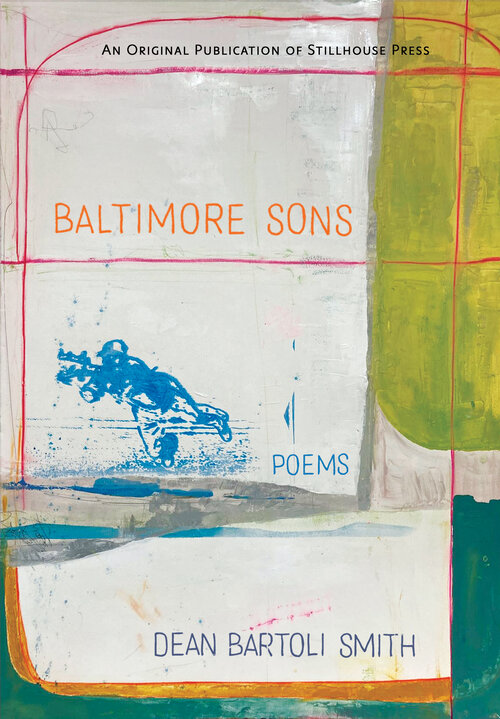 For Baltimore has faded from its glory days, whenever those were. Some might say it was the nineteenth century, when Francis Scott Key and Edgar Allan Poe roamed the streets and major political parties held their nominating conventions in Baltimore. Smith’s nostalgia is for the sports heyday of the 1960’s when Unitas and the Colts ruled football and the Orioles were always in contention, and the NBA Bullets hadn’t yet left town for Washington.
For Baltimore has faded from its glory days, whenever those were. Some might say it was the nineteenth century, when Francis Scott Key and Edgar Allan Poe roamed the streets and major political parties held their nominating conventions in Baltimore. Smith’s nostalgia is for the sports heyday of the 1960’s when Unitas and the Colts ruled football and the Orioles were always in contention, and the NBA Bullets hadn’t yet left town for Washington.
A review of Love Letter To Who Owns The Heavens by Corey Van Landingham
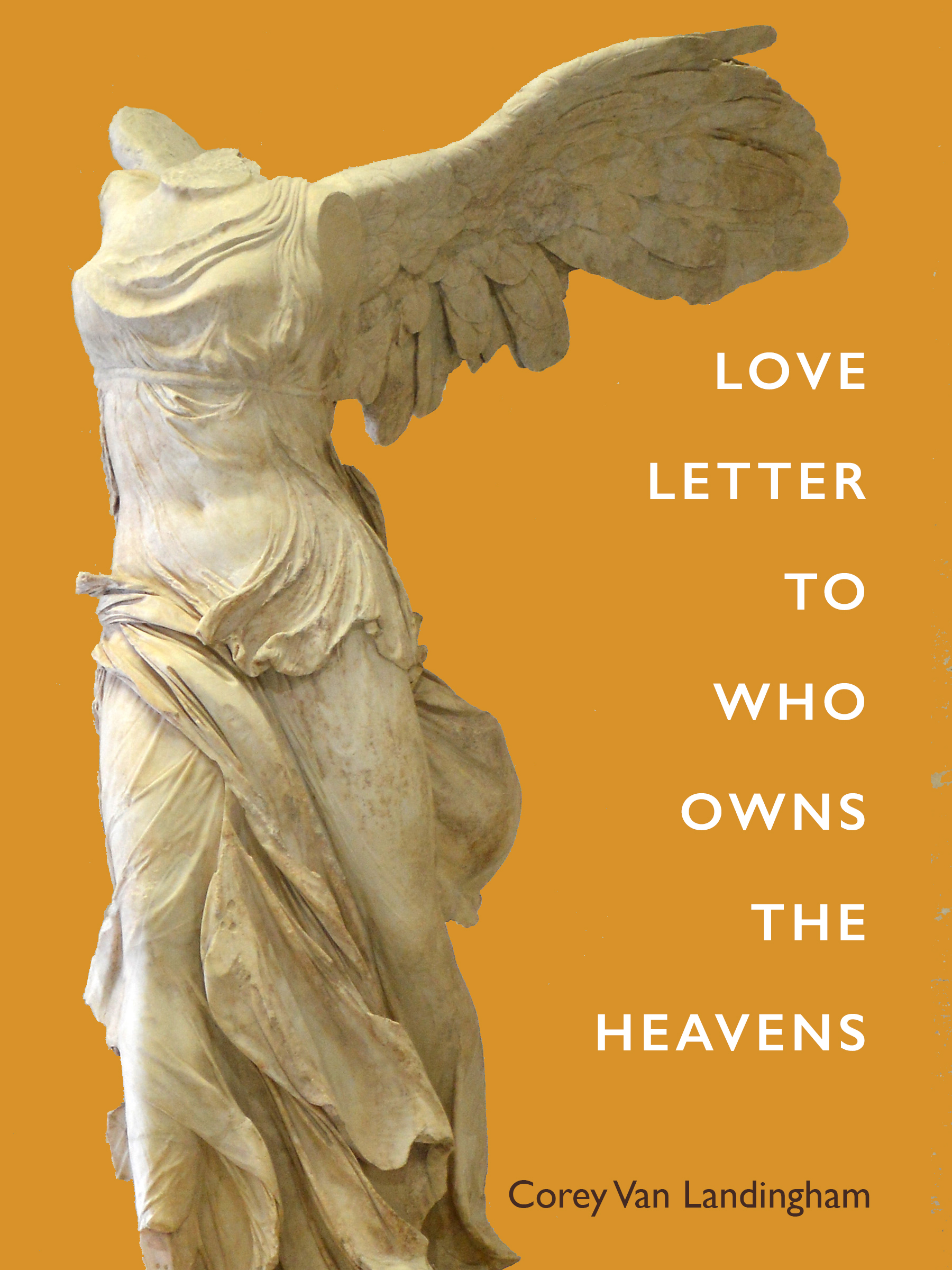 Van Landingham, fortunately, is in no danger of taking herself too seriously. The first page greets us with the dismembered hand of a statue thrusting its lone, attached finger to the heavens. The poems that serve as prologue and epilogue are separated from the first section of the book not by numerals or titles but with that image, which does its job and detaches us from any mood set by the lyrics. This image appears five times.
Van Landingham, fortunately, is in no danger of taking herself too seriously. The first page greets us with the dismembered hand of a statue thrusting its lone, attached finger to the heavens. The poems that serve as prologue and epilogue are separated from the first section of the book not by numerals or titles but with that image, which does its job and detaches us from any mood set by the lyrics. This image appears five times.
A review of Rain Violent by Ann Spiers
 Spiers’ poems are haiku-like. In addition to what we may have learned about haiku in grade school—the tight syllable count, the reference to a season—haikus also juxtapose images and create a sudden sense of enlightenment. Instead of three lines, Spiers consistently makes these poems all four with syllables ranging from 7-10 a line, but they still retain a haiku’s compression, focus on imagery, and juxtaposition.
Spiers’ poems are haiku-like. In addition to what we may have learned about haiku in grade school—the tight syllable count, the reference to a season—haikus also juxtapose images and create a sudden sense of enlightenment. Instead of three lines, Spiers consistently makes these poems all four with syllables ranging from 7-10 a line, but they still retain a haiku’s compression, focus on imagery, and juxtaposition.
A review of The Other Life by Patrick Connors
 Patrick Connors’ poems are unpretentious and refreshingly authentic. The Other Life is a flowing read. There were times I stopped to savor and ponder his words. We readers are invested and interested in learning the nuances of specific character’s lives. Connors speaks clearly.
Patrick Connors’ poems are unpretentious and refreshingly authentic. The Other Life is a flowing read. There were times I stopped to savor and ponder his words. We readers are invested and interested in learning the nuances of specific character’s lives. Connors speaks clearly.
A review of Make For Higher Ground by Diane Lee Moomey
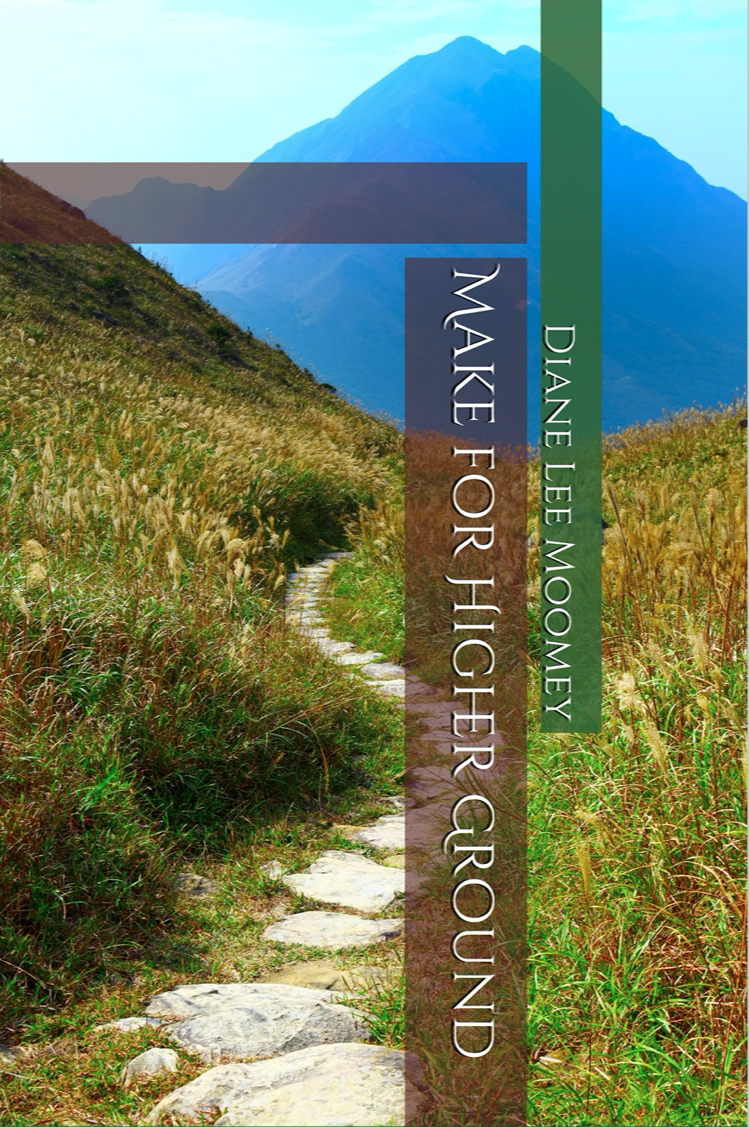 A gorgeous collection full of sky and light, these poems tell stories that remember, long for, miss and sustain love. Importantly, there is nothing saccharin here. Indeed, the last poem ends ominously, “Making coffee, breaking camp—/we do this well together,/but whitecaps, winds and lowered skies; promise heavy weather.” And that’s the point. Higher ground is not a panacea; it isn’t even a place. It is a way of being in the world that Moomey gently urges in this compelling collection.
A gorgeous collection full of sky and light, these poems tell stories that remember, long for, miss and sustain love. Importantly, there is nothing saccharin here. Indeed, the last poem ends ominously, “Making coffee, breaking camp—/we do this well together,/but whitecaps, winds and lowered skies; promise heavy weather.” And that’s the point. Higher ground is not a panacea; it isn’t even a place. It is a way of being in the world that Moomey gently urges in this compelling collection.
A review of Tell Me How You Got Here by Emily Franklin
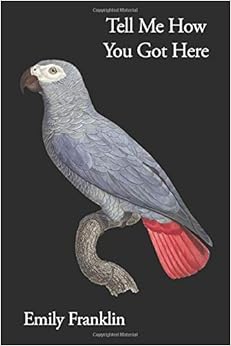 Emily Franklin’s debut poetry collection Tell Me How You Got Here is an emotional exploration of the ways family and possessions become embedded in our consciousness, perhaps even lodged in our DNA. Our attempts to soothe the pain of inherited memories by “forgetting, mottling as salve/for the soul” are often fruitless because the “potholes of memory” make erasure impossible.
Emily Franklin’s debut poetry collection Tell Me How You Got Here is an emotional exploration of the ways family and possessions become embedded in our consciousness, perhaps even lodged in our DNA. Our attempts to soothe the pain of inherited memories by “forgetting, mottling as salve/for the soul” are often fruitless because the “potholes of memory” make erasure impossible.